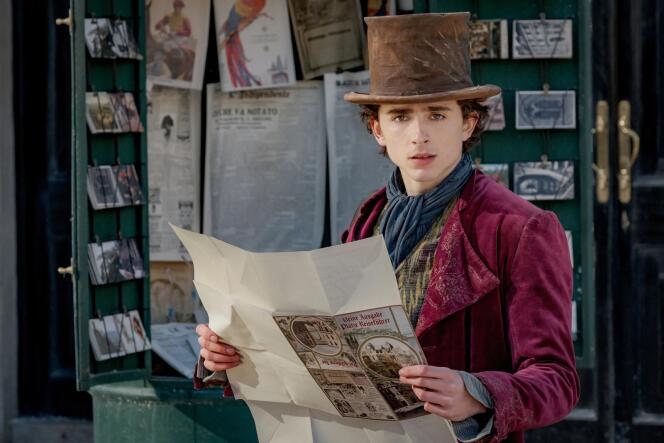


Le Monde's review – Worth seeing
"I need giraffe milk!" shouts Willy Wonka (Timothée Chalamet), as he takes a turn down a dark alleyway in a European-looking city. The young man in the crumpled top hat has been cheated by an innkeeper and no money left in his pocket, but is determined to achieve his ambitions. He will make his chocolates famous and open his store in the Galeries Gourmet, a mecca for sweets.
The scene at the city zoo where Wonka milks the tall ruminant is one of the most beautiful moments in the film, a prequel to Charlie and the Chocolate Factory (1964), the landmark novel by British writer Roald Dahl (1916-1990). Wonka leaves his tunic with a valet, tames the beast with mentholated sweets and sets to work. His sidekick, Noodle (Calah Lane), climbs a stepladder and strokes the animal's chin, making it bat its eyelashes like a damsel.
Despite fears that Wonka would ooze with special effects to rival the mounds and rivers of chocolate described in the book, the opposite is true. All that emerges from the giraffe's milking is a small macaroon, to be savored delicately. The new masters of British children's comedy, co-writer Simon Farnaby and director Paul King (who have already shown their talent in the two Paddington movies), turn away from the excesses of lavish indulgence in favor of the detailed, the tiny, the unusual.
Where Wonka's fine confectionery creations are concerned, the production rejects the close-up, the excess, the shapeless flabbiness, instead presenting the sweets as tiny, refined touches slipped in surreptitiously here and there. We can't help but be seduced by the varied range of Hoverchocs, Hair Repair Éclairs and Mamma's Wonka bars, and admire the marvelous setting – an elegant fictional city, with an air of Bruges, Milan or Paris.
In the original novel, Willy Wonka is already an old man. The eccentric, anxiety-ridden owner has been hiding out in his bankrupt castle-factory for ten years. In a bid to find his successor, he raffles off a "golden ticket," hidden under the wrapping of his chocolate bars, in order to find five children. In Paul King's musical prequel, Wonka is light as a feather, optimistic and energetic enough to take on the "Chocolate Cartel" that wants to ruin him.
Written by Neil Hannon (The Divine Comedy), the musical numbers are part of a fantasy experience that benefits primarily from the director's visual and poetic inventions. These include the ethereal dance performed by ultra-chic strollers who have stopped to eat a Hoverchoc, the tribal dance of the original Oompa-Loompa (a 30-centimeter tall Hugh Grant) who is destined to oversee the workforce of the future Wonka factory, and the enchanting workings of the laundry department...
You have 30% of this article left to read. The rest is for subscribers only.
